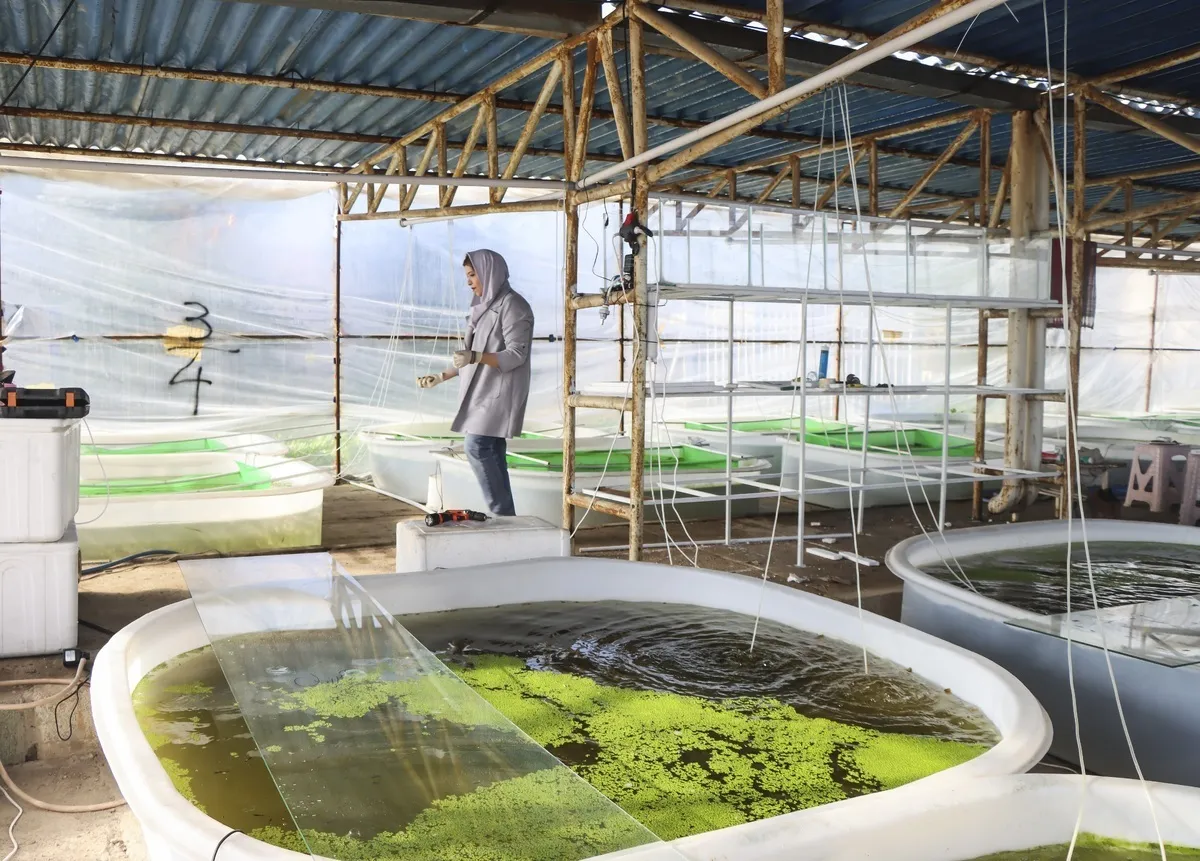Iranian Scientists Use Agricultural Wastewater in Aquaculture

“One of the effective techniques in managing the shortage of water resources is the use of closed-loop systems and water recirculation in the aquaculture system, which leads to maximum productivity of water resources,” Mojdeh Chellehmal Dezfoulnejad, the head of the Center, told ANA.
“In this breeding system, water quality management is highly important and requires advanced equipment to maintain water quality, which increases the initial cost of using a circulating system compared to open systems,” she added.
Chellehmal Dezfoulnejad explained that this increase in initial cost is economically justified given the scale of production in this system.
“Other methods include the aquaponics method as a new method in the production of agricultural products. In this method, fish farming wastewater is used in agriculture, and the plant grows with the nutrients present in the wastewater and chemical fertilizers are not used,” she noted.
The water recycling system and the use of wastewater in the three fields of fish breeding, greenhouse products and poultry breeding is the achievement of another knowledge-based company in Iran too.
At present, the company produces 12 tons of fish, 20 tons of tomatoes, 3 tons of quail meat, and 9 tons of quail eggs with a 95% reduction in annual water consumption.
By recirculating water and reusing the effluents of the three areas of fish breeding, greenhouse products and poultry, the problems of all three areas like mechanical equipment, food supplements and reinforcing fertilizers are settled.
In this project, the amount of consumed water is reduced by 95%, but the amount of fish production will be equal to similar ponds. In this method, the pool water will return to the hydroponic greenhouse culture bed, and the cost of greenhouse production will be reduced by a third before operation and during operation.
In this cycle, water is oxygenated, and since chemical fertilizers cannot be used to grow plants, they use animal manure and quail excrement. In fact, animal excrement supplies the level of chemical deficiencies of water, and the excrement solution is regulated based on the nutrition of quails.
Settling the problem of water resources in the country and solving the problem of lack of fertile soil, preventing non-optimal water consumption for the production of crops, preventing the pollution of water resources by all types of effluents and wastes from the agricultural sector, not using inappropriate chemical fertilizers and pesticides, and producing 100% organic products are the advantages of this system.
4155/v





















